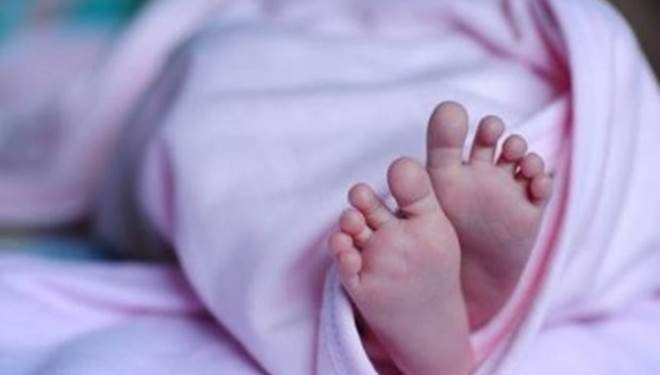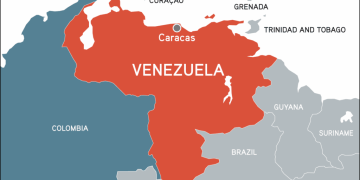Mary Fitzgerald
‘The baby is dead. We can’t assist you here.’ By the time she heard these devastating words, the pregnant Yasmelis Casanova had endured a long and painful journey, passing through multiple COVID-19 checkpoints, to the hospital in Caracas, Venezuela. She bled for hours without treatment. When doctors at a second hospital finally operated on her, they removed her ovaries without her prior consent. Then, she spent 20 days there almost entirely alone; due to COVID-19 restrictions, visits were banned.
Venezuela’s healthcare infrastructure was crumbling well before the pandemic, but the COVID-19 crisis has pushed it to the point of collapse. Many women experiencing obstetric emergencies now struggle to reach hospitals, let alone gain access to adequate care. Yet such failures can be seen far beyond Venezuela, in rich and poor countries alike.
Last month openDemocracy released the results of a global investigation into the treatment of women in childbirth during the COVID-19 pandemic. Across 45 countries – from Canada to Cameroon, from the United Kingdom to Ecuador – we found what doctors and lawyers describe as ‘shocking’ and ‘unnecessary’ breaches of laws and World Health Organization guidelines intended to protect women and babies during the pandemic.
The WHO’s specific COVID-19 guidelines affirm, for example, that women should be accompanied by a person of their choice while giving birth. Yet, across Eurasia and Latin America – including in at least 15 European countries – women have been forced to give birth without companions.
Likewise, the WHO asserts that procedures like C-sections should be performed only when they are medically necessary or have the woman’s consent. Yet in 11 countries, women reported that they didn’t consent to C-sections, inductions, and episiotomies (the cutting of a woman’s vagina) that were performed on them, or said that they did not believe these procedures were medically necessary.
WHO guidelines also dictate that women receive breastfeeding support and the opportunity for skin-to-skin contact with newborns. Yet mothers have been separated from newborns in at least 15 countries – including at least six European countries – and prevented from breastfeeding in at least seven, even though there is no conclusive evidence that COVID-19 can be transmitted through breast milk.
Doctors and health experts agree: none of this is necessary to prevent the spread of COVID-19.
Likewise, there have been multiple reports of pregnancy deaths in Africa, after transport and other lockdown restrictions prevented women from reaching hospitals. Many women in developing countries have been forced to give birth in unsanitary and unsafe conditions. Experts now warn that over the course of just six months, COVID-19 restrictions and health-service disruptions could cause up to 56,700 additional maternal deaths in low- and middle-income countries. If this is not enough to expose the flaws in current COVID-19-prevention measures, consider how unevenly they are implemented (and lifted). In some parts of England, women can now take their partners to the pub, but not to antenatal appointments.
This reflects a long history of the ‘postcode lottery’ dictating access to healthcare and other services, from in vitro fertilisation clinics to domestic violence shelters. And it fits a wider global pattern of downgrading women’s rights and needs, including during childbirth. Just last year, a WHO-led study reported that 42 per cent of the women interviewed by researchers in Ghana, Guinea, Myanmar, and Nigeria said they had experienced physical or verbal abuse, stigma, or discrimination in health facilities during childbirth.
In Latin America, several countries – including Argentina, Ecuador, Mexico, Uruguay, and Venezuela – have passed laws against the performance of medical procedures, such as C-sections, without informed consent. But they are very rarely enforced, and advocates report that authorities and medical staff normalise such obstetric violence.
In fact, before the pandemic, 40 per cent of babies across Latin America were already being delivered by C-section, though this method poses higher risks for mother and baby. The WHO recommends a rate of around 15 per cent, emphasising that C-sections should be carried out only when medically justified.
Furthermore, most African countries were already off track to meet their targets for reducing maternal and infant deaths by 2030, part of the United Nations Sustainable Development Goals. As Jesca Nsungwa Sabiiti, Uganda’s maternal and child health commissioner, has noted, the pandemic is likely to delay achievement of the targets even further.
But just as the COVID-19 crisis can impede progress, it can also spur change, by forcing governments and civil society to rethink how our health systems, economies, and societies are organised. So far, discussions – especially among policymakers – have tended to be narrow, focused on short-term solutions. If we are to build the ‘equitable, resilient, and sustainable’ post-COVID world that many leaders advocate, we must embrace a much more ambitious vision of what public health really means.
For example, laws protecting the vulnerable need to be enacted and enforced. Health bodies and other agencies must investigate violations and hold medical providers accountable. And governments and donors must allocate far more resources for advocacy in problematic areas such as maternal health, and for implementing a rights-based approach to medical training and service provision across the board.
The issue extends far beyond direct medical care. Today, women can be imprisoned for having miscarriages (as in El Salvador) and detained for non-payment of hospital bills after childbirth (as in Kenya). Structural inequality and discrimination based on gender, race, class, disability, and more still shapes every aspect of our lives, in rich and poor economies alike. All of these failures undermine public health.
Far too many women have felt alone, scared, and traumatised while giving birth during the pandemic. In openDemocracy’s investigation, one woman in Italy expressed her hope that policymakers and medical providers would learn from her suffering, and the suffering of those like her, so that other women wouldn’t have to endure what she did. We owe it to these women to ensure that they do.
The writer is Editor-in-Chief of openDemocracy, which tracks rights violations of women in childbirth globally. @Project Syndicate.






































